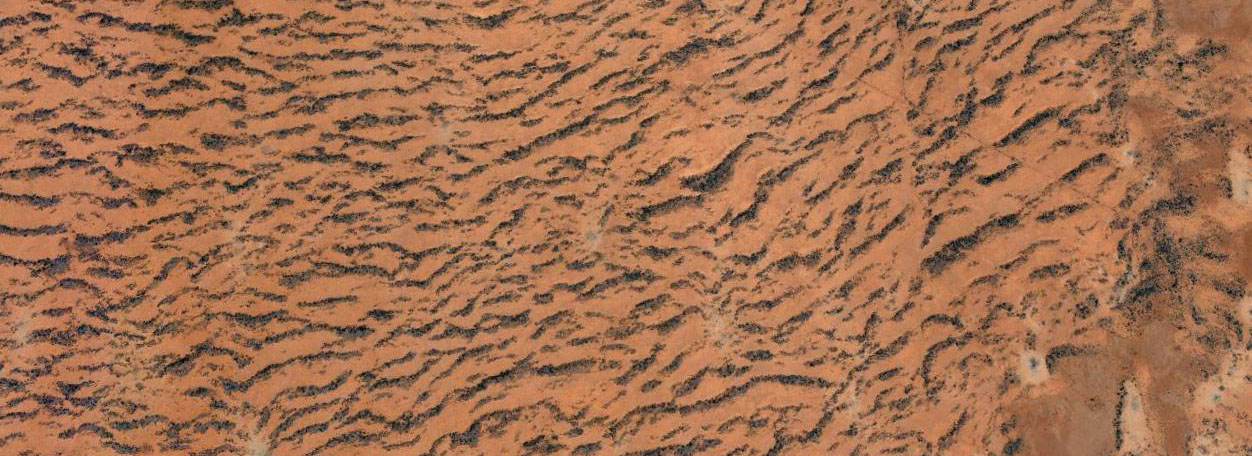
Robbin Bastiaansen on thesis award: ‘This proves you should never give up’
Using mathematics as a weapon against desertification. With this subject, Robbin Bastiaansen managed to win the C.J. Kok Jury Prize 2019, the prize for the best dissertation of the Faculty of Science that year. Nine months later, we speak to him about this prize. How does he look back on it?

What was it like for you to win the prize? Did it come as a surprise?
‘It definitely came as a surprise. How many theses are written at the Faculty each year? I did not dare to think – or hope – that mine would be chosen by the jury.
‘It is, of course, very nice to receive such a prize. But to be honest, it took a while before I realised it. At the time of the award ceremony, I was in the middle of moving house, had just started a day as a postdoc at Utrecht University, and I had caught such a cold that I could barely talk - you did not stay home for that at the time. It wasn't until the frenzy was over and I walked past the award certificate at home that I started to realise it and be really proud of it.’
Why do you think the jury picked your thesis out of all those dissertations?
‘I think the highly interdisciplinary character was very important here. On the one hand, I've been busy developing new, fairly substantial mathematics. On the other hand, I have also translated, interpreted and tested the new insights in an ecological context, namely vegetation patterns in near-deserts. And I suspect that the subject itself has played a role as well: after all, this is a fairly tangible subject for theoretical research and it also seems to arouse some sort of universal interest among people.’

Do you think this prize can help you in your scientific career?
‘Let’s say I have mixed feelings about this. On the one hand, I do not think so; in my opinion, success in science depends on many more things. The award may be nice on my résumé, but I think coincidence – being in the right place at the right time – is much more important.
‘On the other hand, if I look at it in a less cynically, such a prize does give a certain recognition, namely that the work I have done has a certain quality to it. When you do research, you spend months or even years trying to get to the bottom of something difficult. It’s a process of pick yourself up, dust yourself off and start all over again. The endpoint, such as an article or dissertation, only shows little of these struggles. So little that you sometimes think – or at least I do – “how difficult was that?” or “why did it take you so long?”. And these are questions that now and then, certainly when you look at others, result in the question whether you are doing well and whether you can do it. And it is precisely for this reason that confirmation, such as this prize, is really nice and important to stay motivated and still dive into this scientific uncertainty over and over again. So in that sense, such an award does help my scientific career.’
The prize also includes a sum of €2,500, have you already spent it?
‘No, not yet. I would like to spend it on something related to my scientific work. Recently, I was thinking that I might be able to use the money to upgrade my home office or make it more ergonomic!’

Mathematics and ecology
When desertification occurs, a desert area is created, or even a whole new desert. This desertification creates areas that are ‘near-deserts’, with vegetation patterns where vegetation and barren areas alternate. For his research, Bastiaansen studied the characteristics of these patterns. By working together with mathematicians and ecologists, he looked at the typical behaviour of mathematical models and their implications on real ecosystems. Newly available datasets from satellites provided valuable information, for example about the biomass of these patterns. Bastiaansen's research contributes to the global fight against desert expansion.
